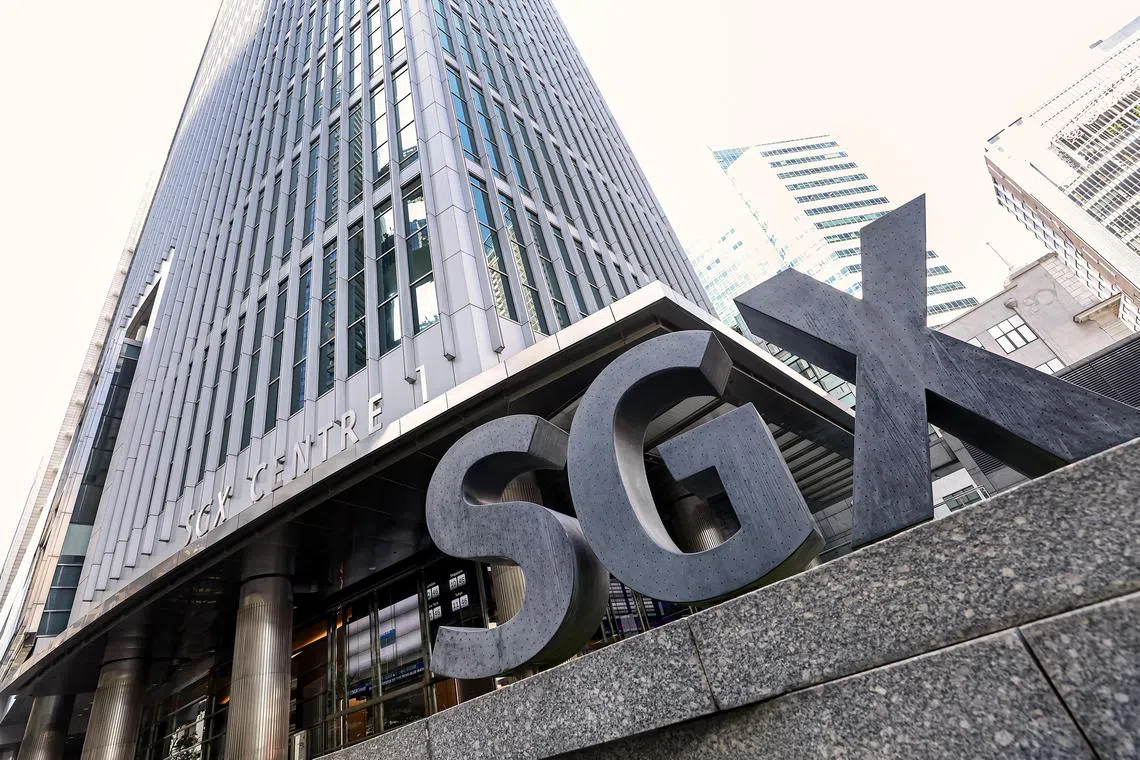Singapore will ‘mop up’ much of financial business leaving HK
Sign up now: Get ST's newsletters delivered to your inbox

Singapore has risen as a financial centre in recent years, boosted by China’s crackdown on Hong Kong.
PHOTO: THE BUSINESS TIMES
Follow topic:
SINGAPORE – Singapore is well placed to reap the benefits as nervy investors bail out of Hong Kong amid a wider shake-up among Asia’s traditional financial centres.
The Economist Intelligence Unit (EIU) noted that these hubs are being shaped by geopolitical uncertainties, regulatory changes and varying levels of investor confidence across different markets.
Geopolitical developments have caused significant volatility in Asia’s stock markets in recent years, prompting investors to reallocate their portfolios.
The EIU, the research and analysis arm of The Economist Group, believes geopolitical factors will continue to weigh on China and Hong Kong while capital markets in Japan and India will thrive over the next few years.
“Moreover, Singapore will mop up much of the financial business that is leaving Hong Kong,” it added.
Hong Kong’s stature as one of the world’s foremost financial centres is eroding
The economic woes of mainland China, particularly in the real estate and technology sectors, have further undermined confidence in Hong Kong’s market.
Funds raised from initial public offerings (IPOs) have fallen to a 20-year low in Hong Kong
In August 2023, the Hong Kong government established a task force to review the factors affecting stock market liquidity, including the listing regime, market structure and trading mechanism.
“However, we believe that the territory will rely increasingly on the Chinese market. While it may remain an important regional hub, its status as a global financial centre will severely diminish over the coming years,” the EIU said.
By contrast, it noted that Singapore’s market is poised to grow further on the back of timely reforms, strong fundamentals and favourable geopolitics.
Singapore has risen as a financial centre in recent years, boosted by China’s crackdown on Hong Kong.
Record amounts of private wealth and capital have flowed into Singapore, which appeals to investors for its stability and business-friendly, low tax market.
But the success in private markets has never flowed through to its stock market, with the Singapore Exchange (SGX) plagued by low volumes, the EIU noted.
It said that despite healthy corporate earnings, the market’s price to earnings ratio – an indication of whether a stock is expensive or cheap – has declined, suggesting cautious investor sentiment.
Delistings on the SGX have frequently outnumbered listings in recent years. Only one company listed on the bourse in the first half of 2024, making Singapore the worst-performing IPO market in South-east Asia.
The sole debutante was cancer treatment provider Singapore Institute of Advanced Medicine Holdings, which raised just US$20 million (S$27 million) from its February debut.
Meanwhile, Malaysia listed 21 companies, which raised around US$450 million in all, making it the region’s top IPO market in the first half of 2024
The EIU said Singapore’s IPO activity is likely to remain subdued in this half of 2024 as valuations of the real estate investment trusts fall. High-growth companies backed by private equity and venture capital may also hesitate to go public in a high interest rate environment.
Timely reforms, however, may revitalise Singapore’s stock market.
The Monetary Authority of Singapore has set up a review group to strengthen the market. Chaired by Second Minister for Finance Chee Hong Tat, the group includes private-sector stakeholders and public-sector representatives and is expected to complete its report within a year.
One suggestion is to mandate stock market participation from the record sums of private capital that have poured into Singapore, such as into family offices and other wealth management businesses.
Another is to allow pension and sovereign money to be invested in the market, as seen in Australia or Thailand. While Temasek invests in local and international companies, GIC, which manages the government’s foreign reserves, invests only internationally.
Other initiatives include offering grants to cut listing costs and increase research coverage of Singapore-listed stocks.
“Even if the reforms are pushed through, a more holistic approach may be needed to encourage local funds and asset managers to trade more actively, along with new corporate governance and disclosure rules to shore up long-term investor confidence,” the EIU said.
Stock markets in Japan and India have also benefited from concerns over China’s crackdown as many investors diversify their portfolios to manage risks.
But these two markets also face challenges. Indian equities are more expensive than regional peers, posing a risk to future performance.
Japan’s geopolitical situation could be complicated by its alliance with the US, particularly if November’s presidential election results in a more isolationist policy stance, the EIU said.


